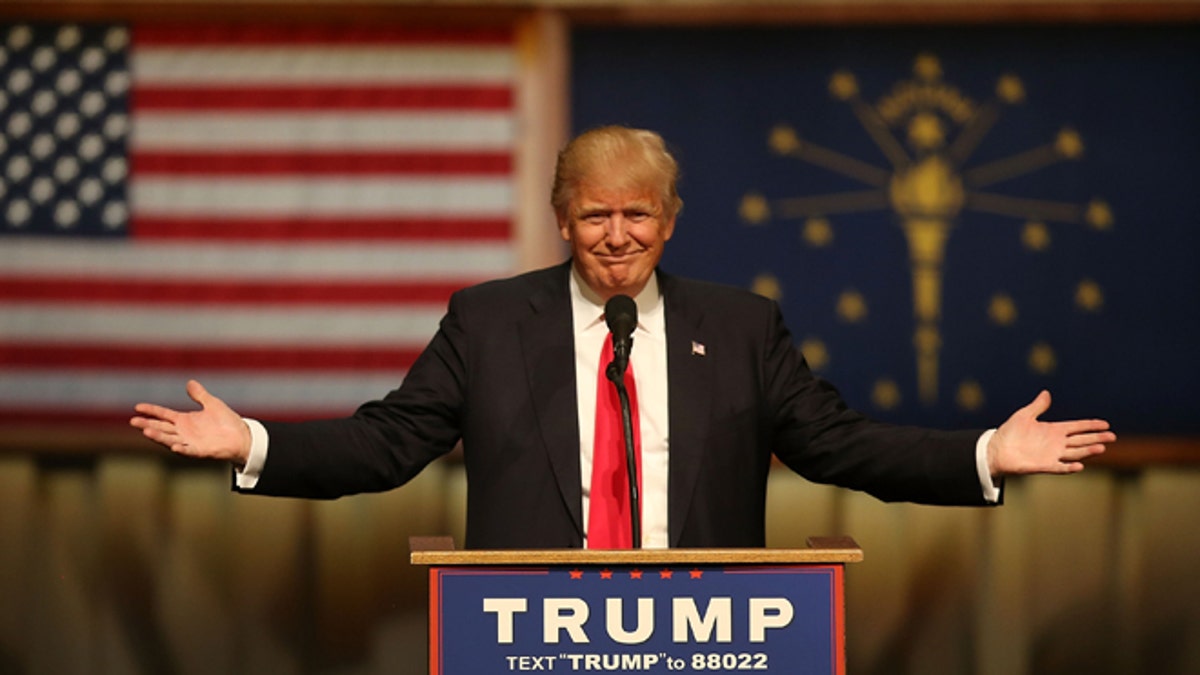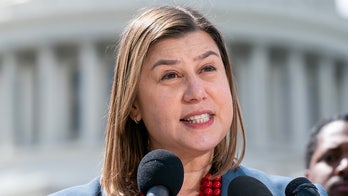
Republican presidential candidate Donald Trump speaks during a campaign stop in Carmel, Indiana. (Photo by Joe Raedle/Getty Images) (2016 Getty Images)
In one of his most overt efforts to reach out to the critical Latino voting bloc, the presumptive Republican presidential nominee Donald Trump wants to address a meeting of influential evangelical Hispanics this weekend – hoping to draw their support this November.
Trump intends to submit videotaped remarks to be played at this weekend’s annual meeting of the National Hispanic Christian Leadership Conference – the largest Latino evangelical organization in the U.S. It may be the first time that Trump addresses a major Latino organization.
The NHCLC president, Samuel Rodriguez, told Fox News Latino on Thursday morning that the group hasn’t yet received a tape from the Republican’s campaign. Nor have they received video remarks from Democratic presidential candidates Hillary Clinton, who shortly after Trump’s request was reported asked to send her own recorded remarks.
“It is my intention to review both video messages,” Rodriguez told FNL, “to ensure that they are appropriate for our audience.”
Trump has angered many Mexican-Americans and Latino groups, including the NHCLC, with his harsh tone about people who enter the country illegally and his drastic proposals to build a border wall and round up millions of undocumented migrants.
“I have not just opposed but condemned Donald Trump’s rhetoric about Latinos,” Rodriguez said.
Rodriguez added that while “conversations have taken place about a possible meeting” with the GOP candidate, nothing so far has come of it.
Some say Trump’s gesture to the evangelical group could be his first step in trying to strengthen his appeal among Hispanics.
Brent Wilkes, the national executive director of the League of United Latin American Citizens or LULAC, told the Washington Post, “It would be the first time that I’m aware of that [Trump’s] addressing, even though it’s a videotaped message, a Latino organization. That’s encouraging, honestly."
Not that winning over Hispanics will be easy for the reality TV star.
Polls show that only a fraction of Latino voters support the likely GOP candidate. In recent presidential elections, Republican presidential candidates who capture more than 40 percent of the Hispanic vote – such as George W. Bush – make it to the White House.
Those who receive less, like Mitt Romney, who got 27 percent of Latino support in 2012, have lost.
“He’s going to have to face the music and go out and talk to the community that he’s been denigrating,” Wilkes told the Post.
In October of last year, Trump agreed to a question-and-answer session at the United States Hispanic Chamber of Commerce, but the real estate mogul backed out less than a week before the event was to take place.
About 55 percent of U.S. Hispanics are Catholic, with some 16 percent identifying as evangelical Protestants, according to the Pew Research Center.
Rodriguez said that the Republican and Democratic candidates’ messages would be shown most likely during Friday night’s opening session of the NHCLC meeting in Anaheim, California, which will be attended by 1,200 or so evangelical Hispanic leaders.
“If we do receive the messages, then I will issued a disclaimer,” he told FNL, “saying that while we do not endorse any candidates, historically the NHCLC has provided space to both parties.”




